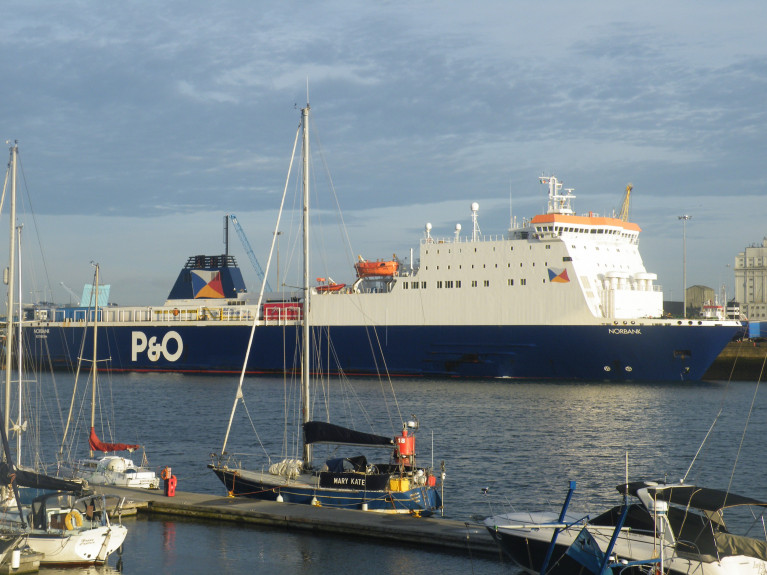Displaying items by tag: Stranded Ferries
Operator in Bid to Re-Route Ferries in Dublin Port Amid Row between P&O and the Port of Liverpool
Under way are efforts to re-route two P&O ferries stranded at Dublin Port amid an ongoing stand-off between the company and the Port of Liverpool.
As RTE News reports, the impasse arose on Thursday when Peel Ports, the owner of the Mersey Docks and Harbour Company, prevented a Dublin-bound P&O ferry (Norbay) leaving the Port of Liverpool over a £600,000 payment.
On this side of the Irish Sea, two freight ferries - one owned by P&O and the other chartered by the company - were unable to set sail for Liverpool because of the row.
The P&O-owned vessel in Dublin - the Norbank - was fully loaded and ready to depart when the incident unfolded in Liverpool.
It is understood negotiations took place between P&O and Dublin Port authorities through yesterday over the issue.
It is further understood P&O now intends to land the ferries at another port location in the north west of England and operate its Dublin service out of that facility until the situation at the Port of Liverpool is resolved.
To read more on this Irish Sea ferry development click here.
























































